Market Influence
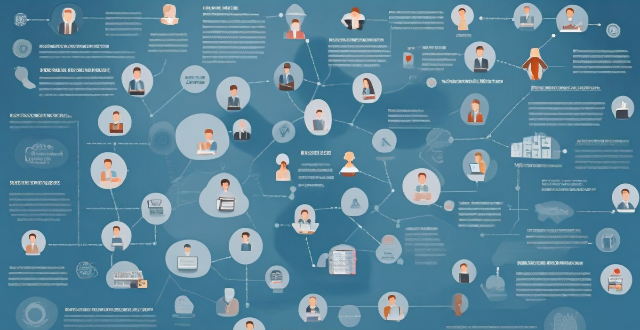
How might a lunar base influence the global economy and job market ?
The establishment of a lunar base could significantly impact the global economy and job market by increasing investment in space technology, creating new industries, driving innovation, and fostering international collaboration. It could also create numerous job opportunities and expand educational opportunities focused on space-related disciplines.

What are the challenges and opportunities for developing countries in the carbon trading market ?
Challenges and opportunities for developing countries in the carbon trading market include lack of infrastructure, legal and regulatory hurdles, market access and information asymmetry, capacity building needs, economic growth and investment, technology transfer and innovation, environmental sustainability, policy influence and leadership.
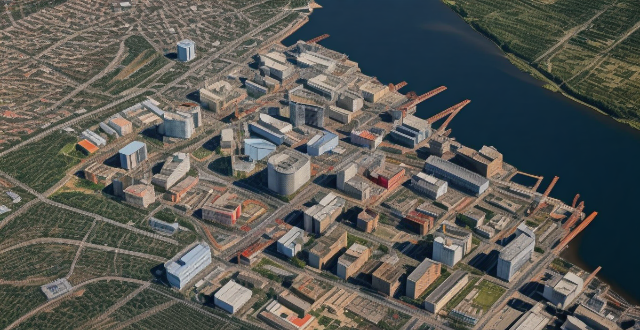
How do political events affect the stock market, and how can they be analyzed ?
This comprehensive analysis explores the impact of political events on the stock market, including economic policies, regulatory changes, international relations, and elections. It also provides strategies for analyzing their potential effects, such as staying informed, diversifying your portfolio, using technical and fundamental analysis, and monitoring sentiment indicators.

How do celebrities influence the trends in sports fashion ?
Celebrities significantly impact sports fashion trends by setting styles, partnering with brands, using social media influence, promoting healthy habits, and participating in sports events. This influences consumer choices and shapes the market for sportswear.
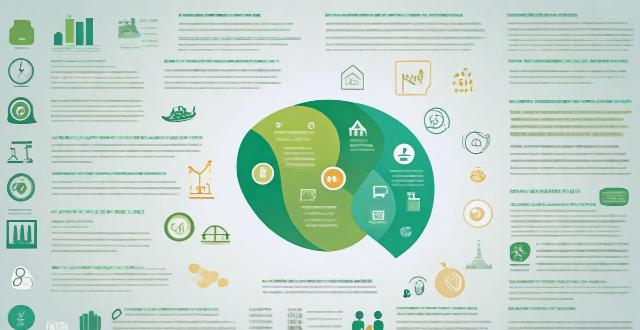
How will climate change influence future job markets ?
The article discusses how climate change will influence future job markets. It highlights the increased demand for green jobs, a shift toward resilient industries, and potential declines in certain sectors that contribute to greenhouse gas emissions or rely heavily on fossil fuels. Additionally, remote work opportunities may rise due to extreme weather events and environmental concerns. The article concludes by emphasizing the need for individuals and organizations to adapt to these changes in the job market.

What is the role of macroeconomic indicators in stock market analysis ?
The article discusses the importance of macroeconomic indicators in stock market analysis, highlighting key indicators such as economic growth, inflation, interest rates, employment, and government policies. It suggests monitoring these indicators to identify trends and patterns that can impact the stock market, integrating this analysis with other tools for a comprehensive view.
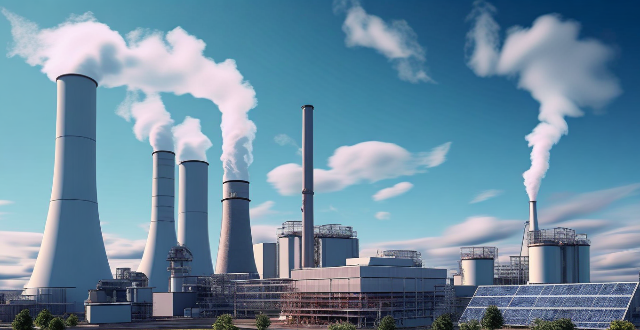
How do geopolitical tensions influence the energy market ?
Geopolitical tensions have a significant impact on the energy market, affecting oil and natural gas prices, renewable energy sources, and energy infrastructure. Political instability or conflict in regions where energy resources are located can lead to disruptions in supply and demand, ultimately affecting prices and availability. It is important for policymakers and businesses to consider these potential impacts when making decisions related to energy policy and investment.
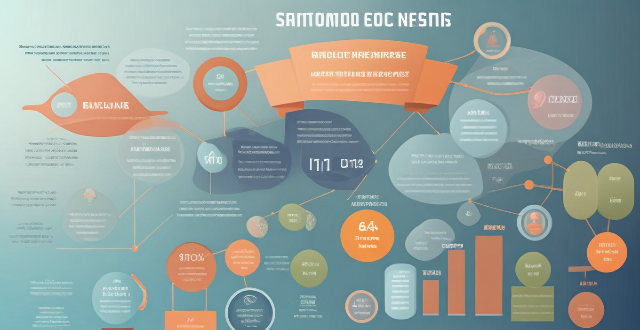
How do economic indicators affect stock market performance ?
Economic indicators significantly impact stock market performance by reflecting the health of an economy. Key indicators include GDP, inflation rate, unemployment rate, interest rates, trade balance, consumer confidence index, and manufacturing index. Each of these measures provides insights into different aspects of economic activity, influencing investor sentiment and decision-making processes. By understanding how these indicators affect the stock market, investors can make informed decisions to maximize returns while minimizing risks.

How do immigration policies affect the real estate market ?
Immigration policies have a significant impact on the real estate market, affecting demand for housing, property prices, rental markets, and long-term urban development patterns. Open immigration policies can lead to an influx of new residents, increasing demand for housing and contributing to a diversification of the housing market. This can result in higher property values and rental rates, as well as more construction projects to accommodate the growing population. However, changes in immigration policies can also affect the availability of financing options for potential homebuyers, further influencing property prices. In addition, immigration policies can have long-term effects on urban development patterns, creating new opportunities for investment and development. Understanding these relationships is crucial for anyone involved in the real estate industry or considering investing in property within regions affected by changing immigration policies.

How is the price of carbon credits determined in the carbon trading market ?
The price of carbon credits in the carbon trading market is determined by various factors, including supply and demand, regulatory policies, and market dynamics. The balance between supply and demand significantly affects the price, with high demand increasing the price and oversupply decreasing it. Regulatory policies such as cap-and-trade systems and carbon taxes also play a crucial role in setting limits on emissions and creating incentives for companies to reduce their emissions or purchase carbon credits to offset them. Market dynamics such as speculation, liquidity, and transparency can also impact the price of carbon credits. As awareness of climate change grows, the demand for carbon credits is likely to increase, driving up their price. However, ensuring transparent and efficient operation of the carbon market is essential to maximize its potential benefits for both companies and the environment.

What is the correlation between housing market indicators and the overall economy ?
The housing market is a significant indicator of the overall health of an economy, intertwined with employment, consumer spending, and financial markets. Housing starts and permits signal economic growth; existing home sales reflect consumer confidence; home price indexes affect household wealth and consumer spending; mortgage rates influence home purchases; inventory levels indicate market strength or challenges; builder confidence suggests future construction trends; foreclosure rates reveal economic distress; and rental market trends show limited purchasing options. These indicators provide insight into different facets of the economy, painting a comprehensive picture of the housing market's health and its relationship with the overall economic condition.

How does Fintech influence the job market in the finance industry ?
The influence of fintech on the job market in the finance industry has led to the creation of new roles and changes in the skillset required for existing positions. Fintech companies have increased demand for software developers, data scientists, and cybersecurity experts. Additionally, specialized financial roles like fintech startup founders, regulatory compliance officers, and customer experience managers have emerged. Traditional finance roles such as bankers, accountants, and investment advisors now require proficiency in digital tools and an understanding of automation and data analytics. As technology continues to advance, the finance industry workforce will need to adapt continuously to stay relevant in the changing job market.

How are carbon credits traded and what is their market value ?
The article discusses the trading of carbon credits, which are tradable permits allowing holders to emit certain amounts of greenhouse gases. It explains how carbon credits are traded and their market value, outlining steps in their creation, verification, issuance, trading, and retirement. It also notes that the market value of carbon credits varies based on project type, location, and demand for offsets.

What is the impact of market volatility on my investment strategy ?
Market volatility can significantly impact your investment strategy by affecting risk tolerance, portfolio allocation, timing of investments, emotional responses, and both long-term and short-term goals. It's crucial to anticipate and account for market fluctuations in your approach. Diversification, rebalancing, and strategies like dollar-cost averaging can help mitigate risks and smooth out the effects of volatility over time. Emotional discipline is also essential, as fear and greed can lead to suboptimal decisions. Opportunities may arise during volatile periods, but it's important not to overreact to short-term events and maintain a focus on long-term fundamentals. A well-diversified portfolio and a long-term perspective are key tools for navigating market volatility successfully.

Who are the main participants in the carbon trading market ?
The carbon trading market is a complex ecosystem involving various stakeholders who play crucial roles in reducing greenhouse gas emissions and promoting sustainable development. These participants include governments and regulatory bodies, companies and businesses, investors and financial institutions, project developers and consulting firms, and NGOs and environmental groups. Governments establish the legal framework and policies that govern the market, while companies are required to hold sufficient allowances to cover their emissions or purchase additional allowances if needed. Investors provide liquidity by buying and selling allowances based on their expectations of future price movements. Project developers design and implement projects that generate credits for sale on the carbon market, working closely with governments, companies, and investors. NGOs and environmental groups advocate for stronger climate policies and support initiatives that promote sustainable development.
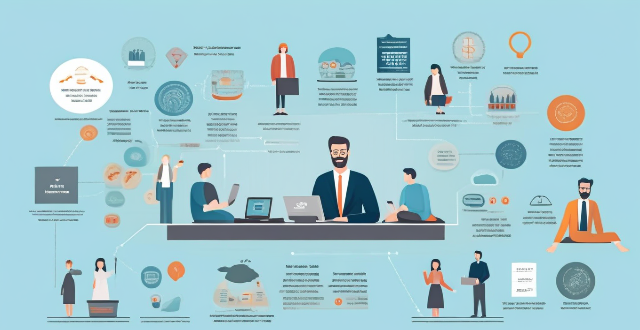
What skills will be most valuable in the future job market ?
The future job market is rapidly evolving, driven byThe future job market is rapidly evolving, driven byization, and changing socie driven by technological advancements, globalization, and changing societal needs. As we look ahead, certain skills will become increasingly valuable to both individuals and organizations alike. Here are some of the most important skills that are likely to be in high demand in the coming years: critical thinking and problem-solving, digital literacy, adaptability and learning agility, communication and collaboration, leadership and management, ethical awareness and social responsibility. By focusing on developing these key areas, individuals can position themselves for success in the ever-evolving landscape of work.

What is the current state of the US stock market ?
The US stock market is currently experiencing a mix of positive and negative trends, including strong economic growth and technology sector performance, but also significant market volatility and trade tensions. Factors impacting the market include interest rates, global economic conditions, and geopolitical risks.

In what ways do economic factors influence the development and assessment of climate policies ?
Economic factors play a crucial role in the development and evaluation of climate policies, affecting decision-making processes, implementation measures, and assessments of effectiveness. These influences include cost-benefit analysis considering both direct and indirect costs, as well as quantifying avoided costs and non-market benefits. Economic growth and development must balance immediate needs against long-term sustainability goals, potentially leading to tension between current jobs and investment in cleaner technologies. International trade and competitiveness are impacted by concerns over carbon leakage and green trade barriers. Public acceptance and political will are influenced by perceptions of fairness and economic impacts on different income groups, while innovation and technology development depend on investments in research and development and the affordability of technology transfer. Overall, achieving effective climate action requires a careful consideration of economic dynamics alongside environmental objectives.

What are the best practices for pricing items in a second-hand market ?
When selling items in a second-hand market, it's essential to follow best practices for pricing to maximize profits and ensure a smooth transaction. Key tips include researching market value, considering the item's condition, setting a fair price, being open to negotiations, and updating the listing regularly. By following these guidelines, sellers can attract more potential buyers and increase their chances of making a successful sale.

How has social distancing impacted the economy and job market ?
Social distancing measures have had a significant impact on the economy and job market, including decreased consumer spending, supply chain disruptions, high unemployment rates, increased demand for remote work, and changes in job seeking behavior.
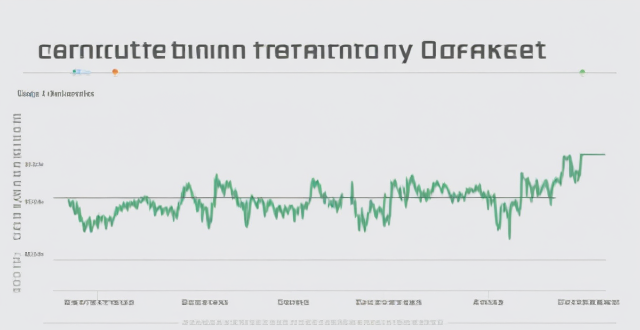
How can I invest in the carbon trading market ?
The carbon trading market offers a lucrative investment opportunity for those interested in environmental sustainability and financial gain. To invest successfully, one should understand the basics of carbon trading, research different carbon markets, choose a broker or exchange, determine an investment strategy, and start trading while managing risk.

How has the COVID-19 pandemic impacted the stock market, and what insights can be gained from this analysis ?
The COVID-19 pandemic has caused increased volatility and uncertainty in the stock market. Certain industries, such as travel and hospitality, have been negatively impacted while others, like healthcare and technology, have experienced growth. Government interventions aimed at mitigating economic effects have both stabilized markets and created long-term concerns. The rise of remote work and digital transformation has benefitted companies able to adapt quickly. As economies begin to recover with widespread vaccination, investors should monitor developments closely to make informed decisions.

What is the carbon trading market ?
The carbon trading market is a financial mechanism that allows for the trading of emissions reductions to meet greenhouse gas emission targets. It is based on cap-and-trade, where a limit is set on total emissions and those who reduce their emissions below the cap can sell their surplus allowances. Key components include carbon credits, emissions caps, trading mechanisms, verification and certification, and regulation and governance. Benefits include cost-effectiveness, flexibility, innovation incentives, and global collaboration. Challenges and criticisms include equity concerns, market inefficiencies, environmental integrity, and political will. The carbon trading market serves as a crucial tool in the fight against climate change but requires ongoing attention and improvement to maximize its effectiveness.

How do celebrities influence fashion trends and beauty standards ?
Celebrities significantly influence fashion trends and beauty standards through their endorsements, red carpet appearances, social media presence, and collaborations with designers. They set trends by making innovative style choices and promoting self-care and wellness. However, their influence is not without controversy, as some argue it leads to unrealistic beauty standards and cultural appropriation.

How can investors influence corporate behavior towards reducing carbon emissions ?
Investors can influence corporate behavior towards reducing carbon emissions by using their financial power and influence. They can do this through shareholder engagement, collaborative engagement, financial incentives, public advocacy, and strategic dialogue. By employing these strategies, investors not only promote corporate responsibility but also pave the way for a more sustainable future.

What is the role of a broker in the stock market ?
Brokers play a key role in the stock market, acting as intermediaries between investors and financial markets. They facilitate trades, provide market information, offer investment advice, manage accounts, and execute complex trades. Their expertise helps investors make informed decisions and manage their portfolios effectively.
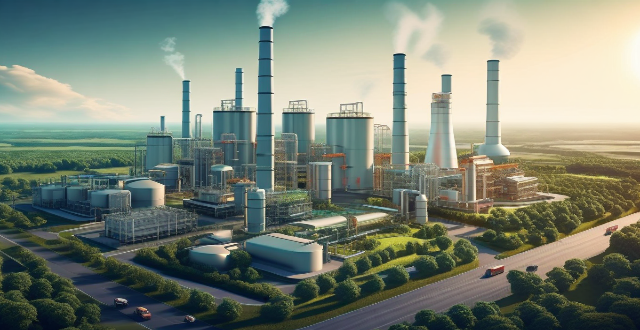
What role does natural gas play in the global energy market ?
Natural gas is a key player in the global energy market due to its environmental advantages, economic benefits, contributions to energy security, technological advancements, and versatile applications across sectors.

What is the difference between a bull and bear market ?
The main difference between a bull and bear market lies in the direction of the market trend and the overall sentiment among investors. Bull markets are characterized by rising stock prices and optimism, while bear markets are characterized by falling stock prices and pessimism.

What is the stock market and how does it work ?
The stock market is a financial ecosystem where investors can buy and sell ownership shares of publicly traded companies. Companies use it to raise capital, while investors aim to share in the company's success. Prices of stocks are determined by supply and demand, influenced by various factors including company performance, market trends, and economic conditions. The market is regulated to protect investors and maintain fairness. Investing in stocks comes with risks but also offers potential rewards, making it a popular choice for long-term investments.

How can I protect my growing wealth from market fluctuations ?
Market fluctuations are a natural part of any investment journey. However, as your wealth grows, it becomes increasingly important to implement strategies that can help protect your assets from the ups and downs of the market. Here's how you can do it: - Diversify Your Portfolio - Use Hedging Strategies - Stay Updated on Economic Indicators - Regularly Review and Rebalance Your Portfolio - Work with Financial Advisors